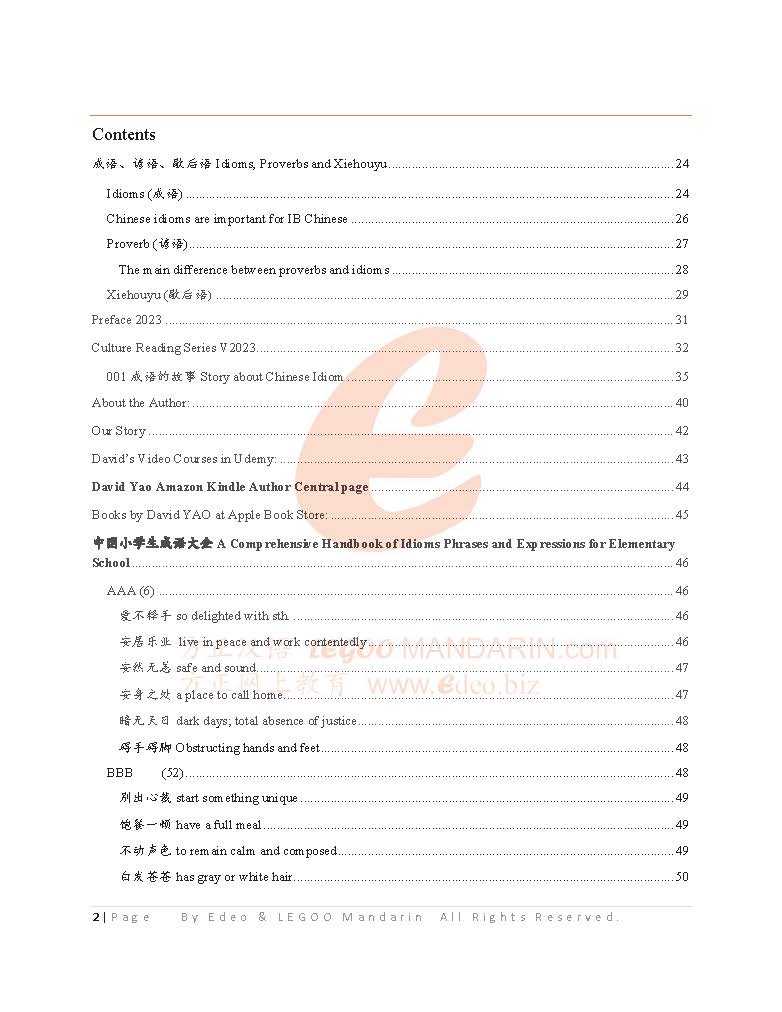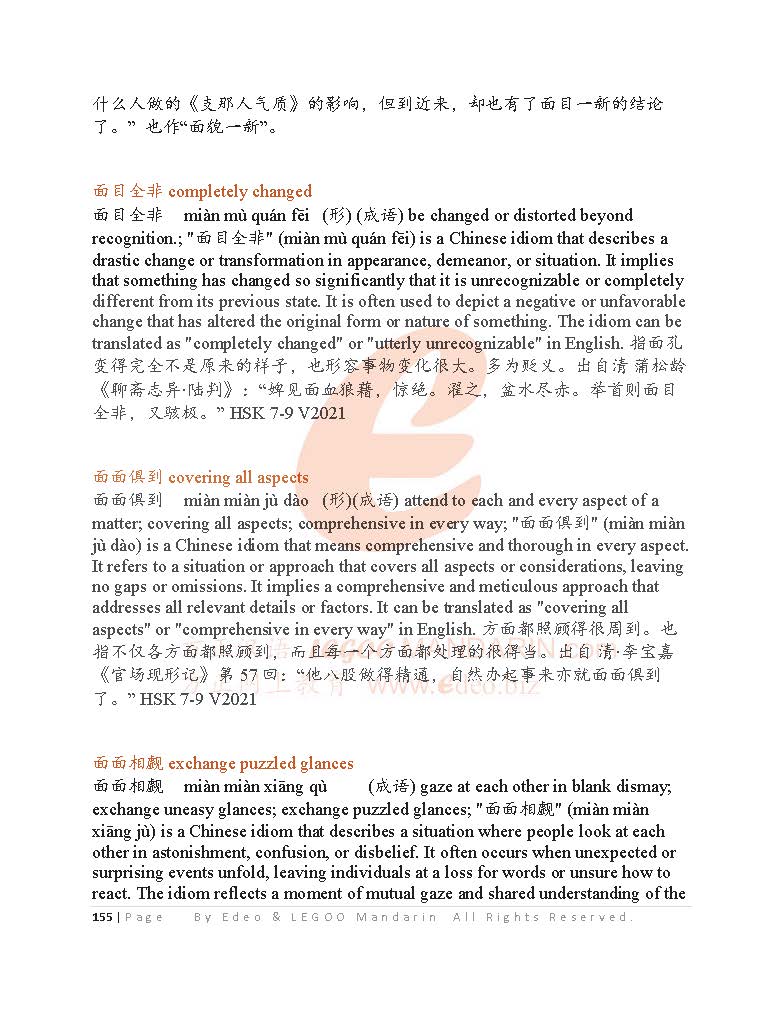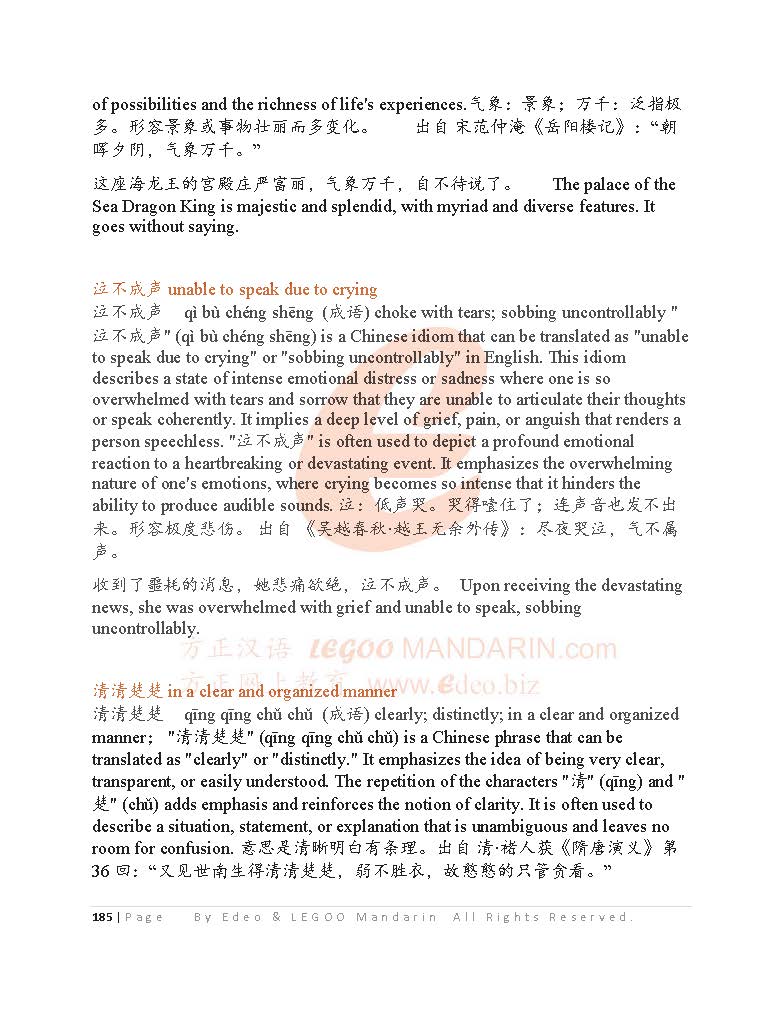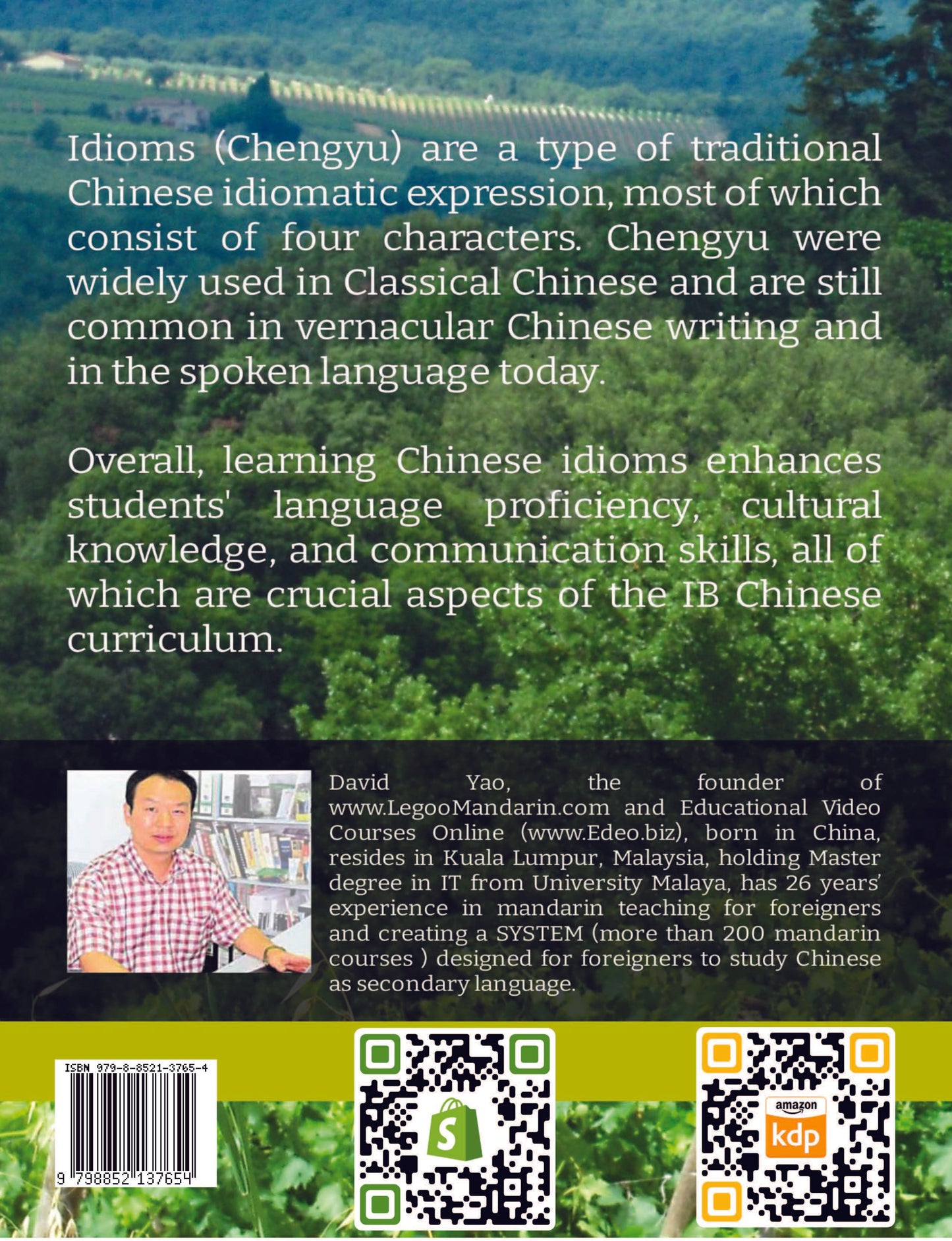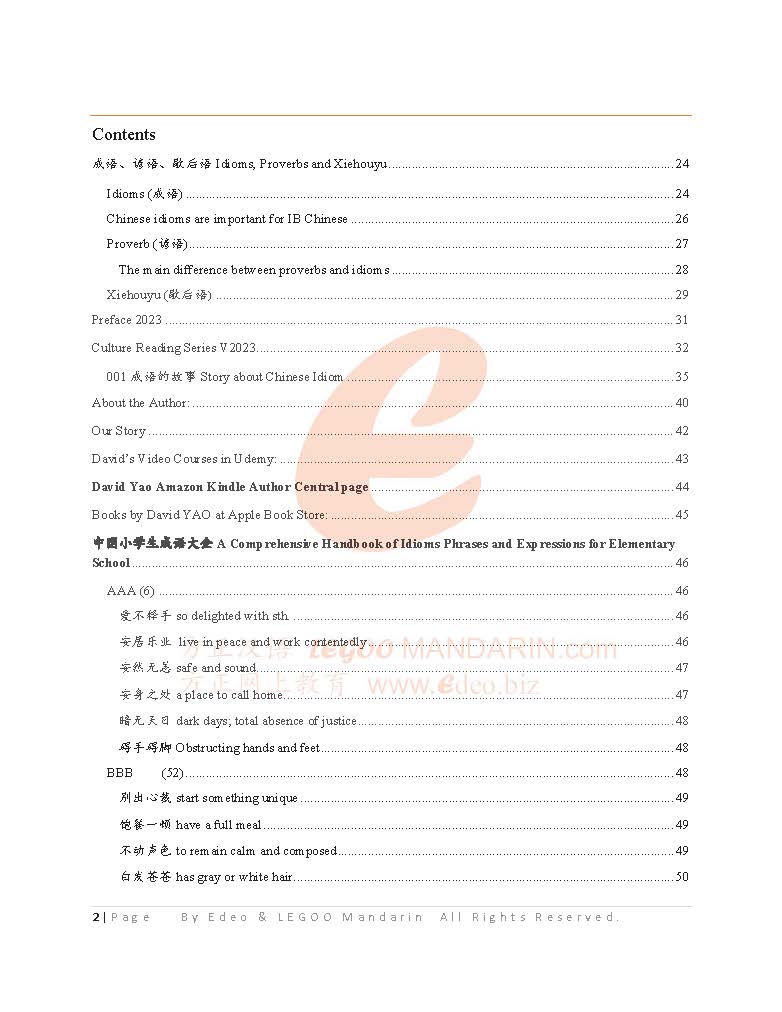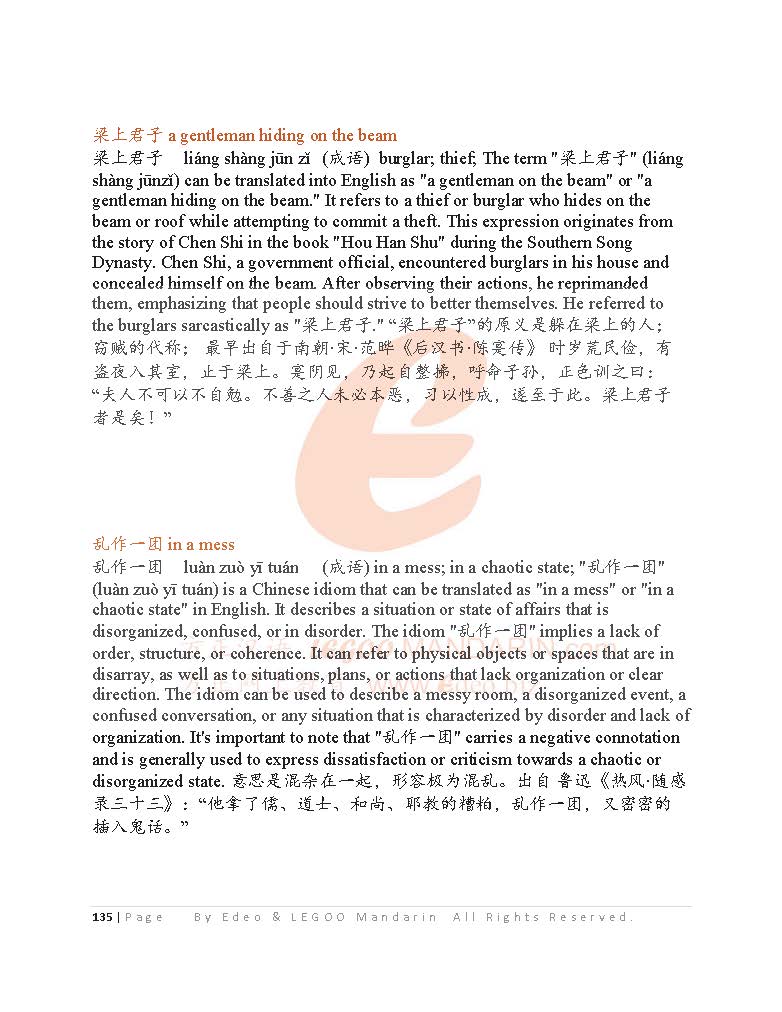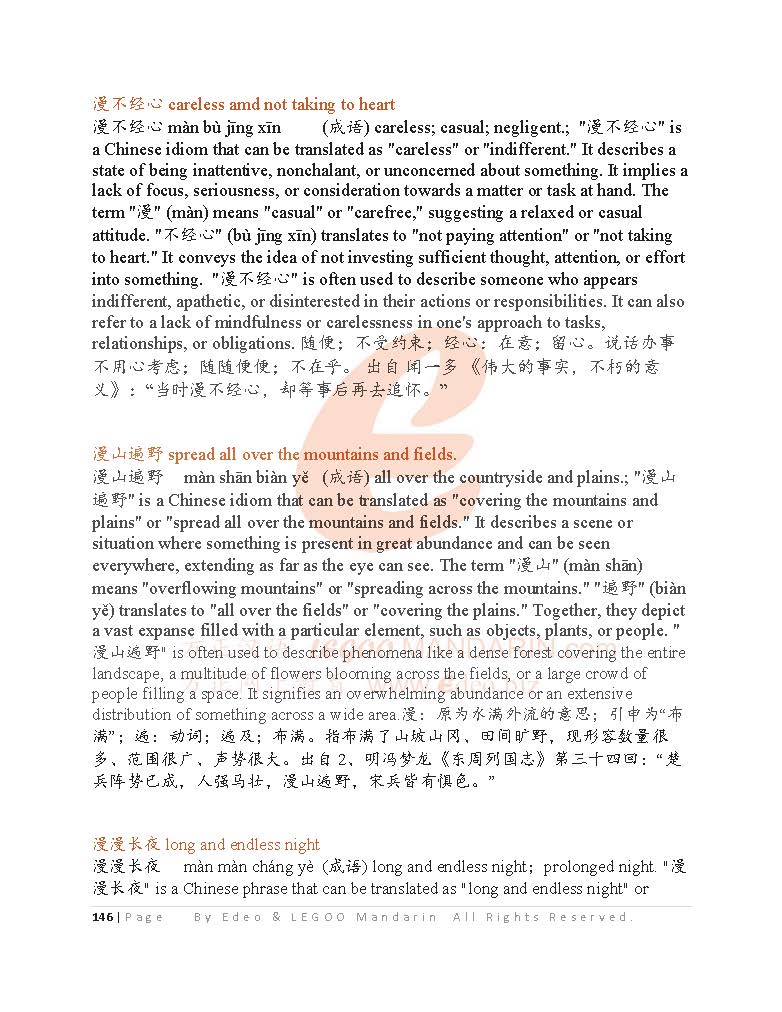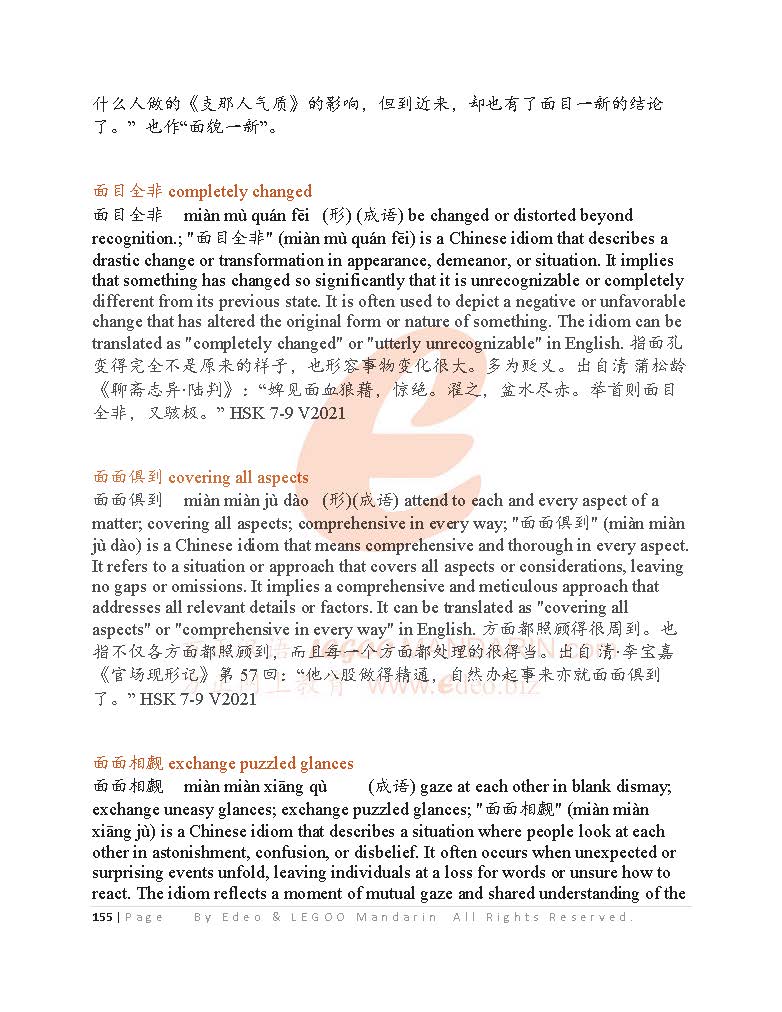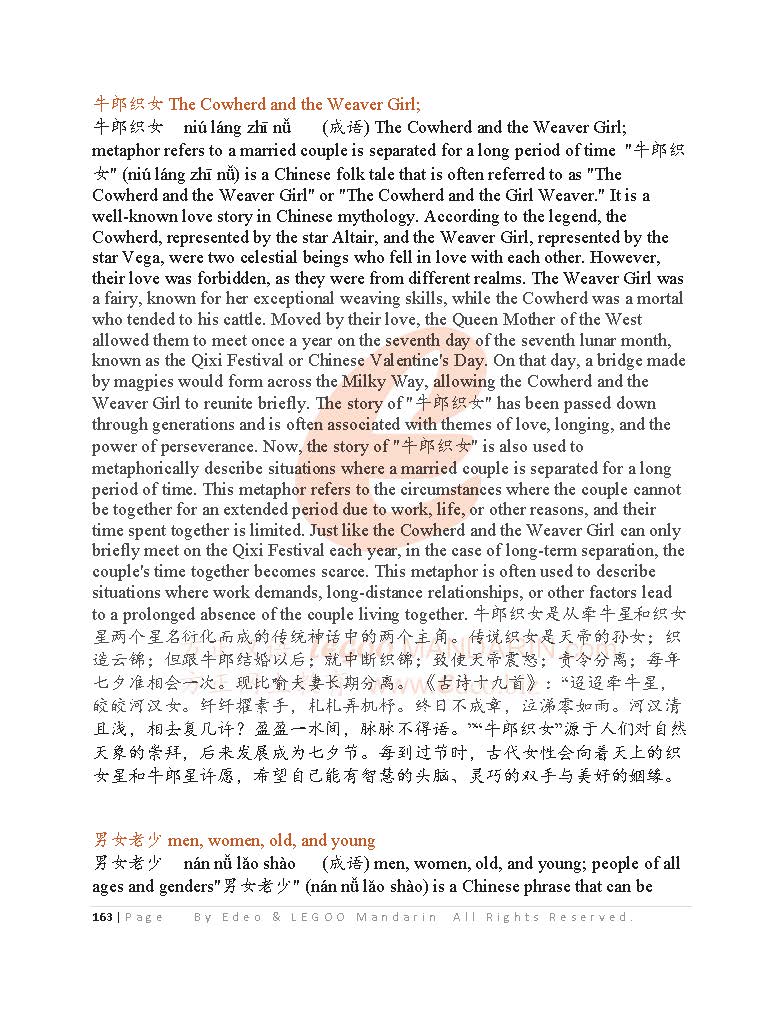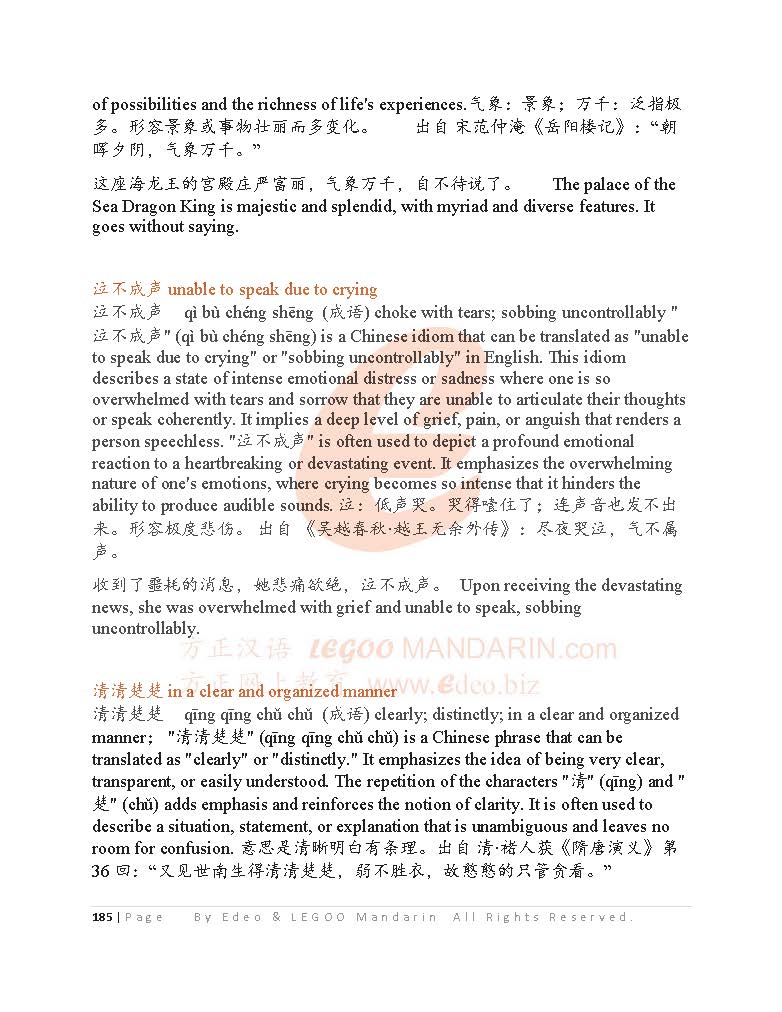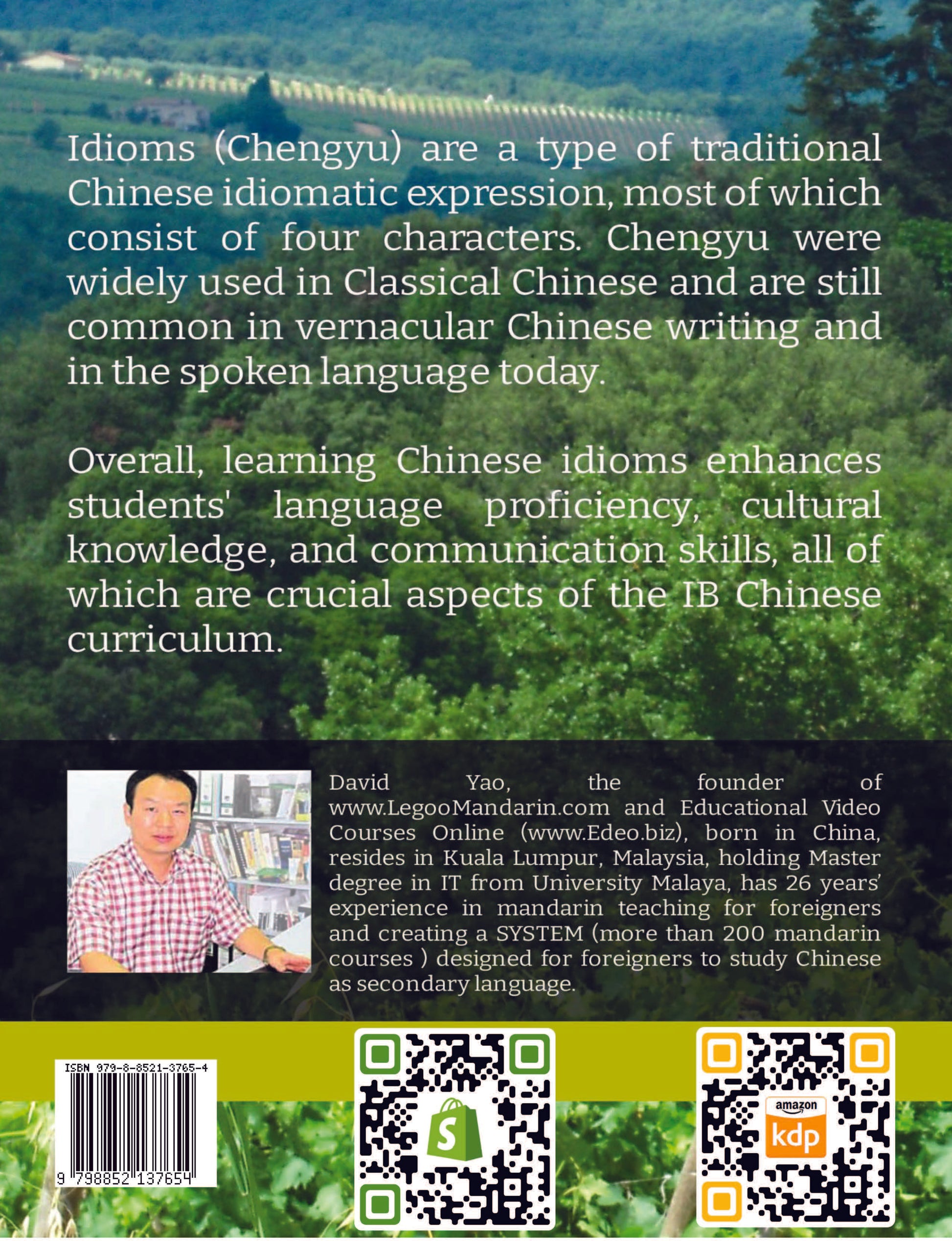Edeo & Legoo
600 Chinese Idioms for IB Mandarin ab initio Success 解码成语,点亮IB中文考试成功之路
600 Chinese Idioms for IB Mandarin ab initio Success 解码成语,点亮IB中文考试成功之路
Regular price
$18.99 USD
Regular price
Sale price
$18.99 USD
Unit price
per
Couldn't load pickup availability
600 Chinese Idioms for IB Mandarin ab initio Success- Enriching Expression, Deepening Language Understanding, Expanding Cultural Knowledge 解码成语,点亮IB中文考试成功之路——拓展表达力,深化语言理解,丰富文化知识,提升阅读理解能力
Idioms (Chengyu) are a type of traditional Chinese idiomatic expression, most of which consist of four characters. Chengyu were widely used in Classical Chinese and are still common in vernacular Chinese writing and in the spoken language today.
Chinese idioms are important for IB Mandarin ab initio Success for several reasons:
Cultural understanding: Chinese idioms are deeply rooted in Chinese culture and history. Learning idioms helps students gain a better understanding of Chinese traditions, values, and ways of thinking. It allows students to appreciate the rich cultural heritage of China.
1 Language proficiency: Idioms are an essential part of the Chinese language and are widely used in both spoken and written forms. Learning idioms helps students improve their vocabulary, comprehension, and overall language proficiency. It also enhances their ability to express ideas creatively and effectively.
2 Reading comprehension: Chinese idioms often appear in Chinese literature, newspapers, and other texts. Familiarity with idioms enables students to comprehend and interpret written materials more accurately. It allows them to grasp the intended meanings, nuances, and figurative expressions in the texts they encounter.
3 Writing skills: Incorporating idioms into written compositions and essays showcases a student's ability to use the Chinese language fluently and expressively. It adds depth and sophistication to their writing, making it more engaging and persuasive.
4 Examinations and assessments: In the IB Chinese curriculum, idioms may be included in reading comprehension exercises, listening tasks, or essay prompts. Being familiar with idioms gives students an advantage in understanding and responding to these assessments effectively.
Overall, learning Chinese idioms enhances students' language proficiency, cultural knowledge, and communication skills, all of which are crucial aspects of the IB Chinese curriculum.
Idioms (Chengyu) are a type of traditional Chinese idiomatic expression, most of which consist of four characters. Chengyu were widely used in Classical Chinese and are still common in vernacular Chinese writing and in the spoken language today.
Chinese idioms are important for IB Mandarin ab initio Success for several reasons:
Cultural understanding: Chinese idioms are deeply rooted in Chinese culture and history. Learning idioms helps students gain a better understanding of Chinese traditions, values, and ways of thinking. It allows students to appreciate the rich cultural heritage of China.
1 Language proficiency: Idioms are an essential part of the Chinese language and are widely used in both spoken and written forms. Learning idioms helps students improve their vocabulary, comprehension, and overall language proficiency. It also enhances their ability to express ideas creatively and effectively.
2 Reading comprehension: Chinese idioms often appear in Chinese literature, newspapers, and other texts. Familiarity with idioms enables students to comprehend and interpret written materials more accurately. It allows them to grasp the intended meanings, nuances, and figurative expressions in the texts they encounter.
3 Writing skills: Incorporating idioms into written compositions and essays showcases a student's ability to use the Chinese language fluently and expressively. It adds depth and sophistication to their writing, making it more engaging and persuasive.
4 Examinations and assessments: In the IB Chinese curriculum, idioms may be included in reading comprehension exercises, listening tasks, or essay prompts. Being familiar with idioms gives students an advantage in understanding and responding to these assessments effectively.
Overall, learning Chinese idioms enhances students' language proficiency, cultural knowledge, and communication skills, all of which are crucial aspects of the IB Chinese curriculum.


